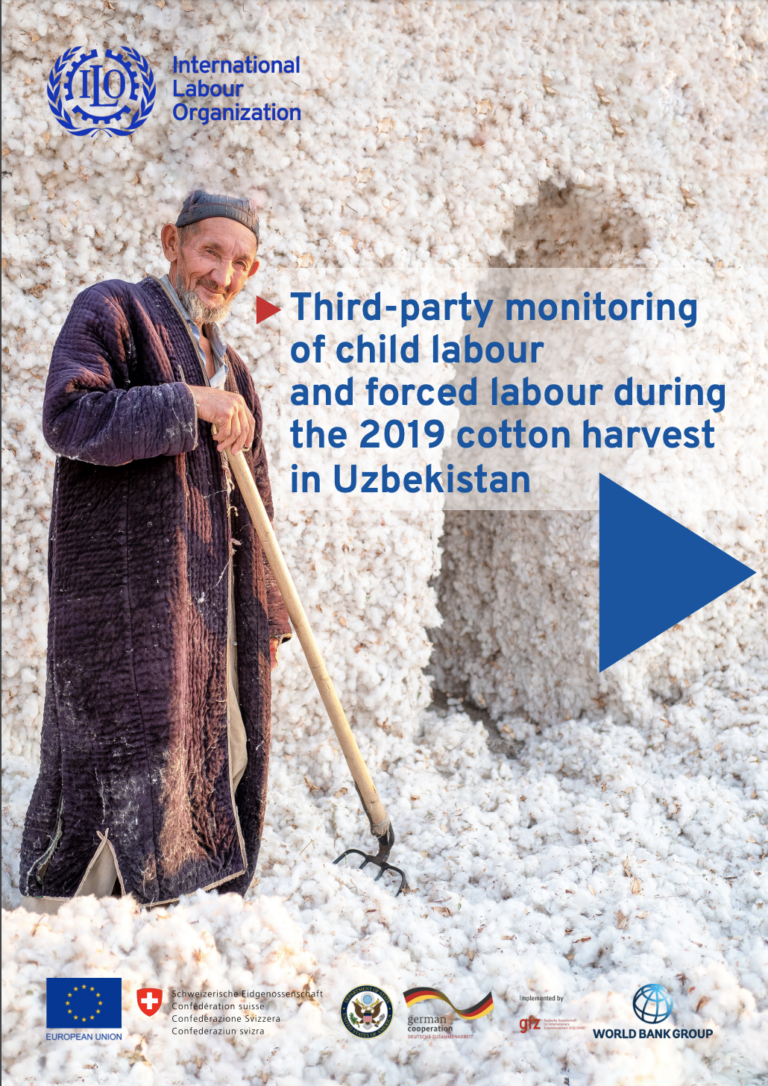This report has been prepared by the International Labour Office pursuant to an agreement between the International Labour Organization (ILO) and the World Bank to carry out third-party monitoring on the incidence of child labour and forced labour in the World Bank-financed projects in agriculture, water and education sectors in Uzbekistan. Third-party monitoring by the ILO was also undertaken and reported on annually since 2015.
Uzbekistan continued to demonstrate major progress in the eradication of child labour and forced labour in the 2019 cotton harvest. As in previous years, there were only isolated cases of minors below the legal working age picking cotton. The number of people in forced labour during the harvest was reduced by 40 percent compared to 2018.
The ILO has taken into account all the different comments and inputs it has received throughout the monitoring process from national governmental and non-governmental organizations, including Uzbek civil society representatives. In line with the request of its partners in Uzbekistan, in particular the Government, this report contains concrete suggestions for action. It also points out further opportunities for cooperation between the partners in Uzbekistan and the ILO and the World Bank

